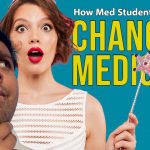Podcast: Play in new window | Download (Duration: 1:01:59 — 85.1MB)
Subscribe: Spotify | RSS | More
 Coaching is an integral part of sports, it’s often used by corporate executives, and even helps people manage ADHD. But until recently coaching wasn’t something physicians used to achieve their goals. For this show, Mark Moubarek, Aline Sandouk, and Amy Young talk with Georgetown University faculty member Maggi Cary and Georgetown student Jack Penner. Dr. Cary is a certified coach specializing in leadership coaching for healthcare professionals. But a serendipitous acquaintance with Jack lead to him becoming a client. Recognizing its value for him as a student–in dealing with the so-called hidden curriculum and impostor syndrome, among other things–they have put together a pro-bono arrangement for twelve Georgetown student with area coaches. These relationships have allowed students to address areas of concern for them without the fears they may have in reaching out to faculty or peers, such as raising red flags or competitive issues. It has also allowed them to get some of the individual attention they may be missing in education systems that are focused more on mass production of doctors. And as medicine itself moves away from the idea that the doctor is the captain of the ship and towards a more integrative model of cooperation between medical professionals, more doctors are excited about learning leadership, management, and even surgical skills that encourage and value the input of their teammates. Dr. Cary and Jack also help us consider an idea sent in by listener JW–that burnout among physicians might be addressed by adopting a less martyred approach to their work in favor of understanding that “it’s just a job.”
Coaching is an integral part of sports, it’s often used by corporate executives, and even helps people manage ADHD. But until recently coaching wasn’t something physicians used to achieve their goals. For this show, Mark Moubarek, Aline Sandouk, and Amy Young talk with Georgetown University faculty member Maggi Cary and Georgetown student Jack Penner. Dr. Cary is a certified coach specializing in leadership coaching for healthcare professionals. But a serendipitous acquaintance with Jack lead to him becoming a client. Recognizing its value for him as a student–in dealing with the so-called hidden curriculum and impostor syndrome, among other things–they have put together a pro-bono arrangement for twelve Georgetown student with area coaches. These relationships have allowed students to address areas of concern for them without the fears they may have in reaching out to faculty or peers, such as raising red flags or competitive issues. It has also allowed them to get some of the individual attention they may be missing in education systems that are focused more on mass production of doctors. And as medicine itself moves away from the idea that the doctor is the captain of the ship and towards a more integrative model of cooperation between medical professionals, more doctors are excited about learning leadership, management, and even surgical skills that encourage and value the input of their teammates. Dr. Cary and Jack also help us consider an idea sent in by listener JW–that burnout among physicians might be addressed by adopting a less martyred approach to their work in favor of understanding that “it’s just a job.”
Listeners, share your thoughts with us on this episode and ideas for future episodes. Call us at 347-SHORTCT any time, and see our Facebook page for a question to consider every week.
Your Hosts This Week:
[huge_it_gallery id=”103″]




